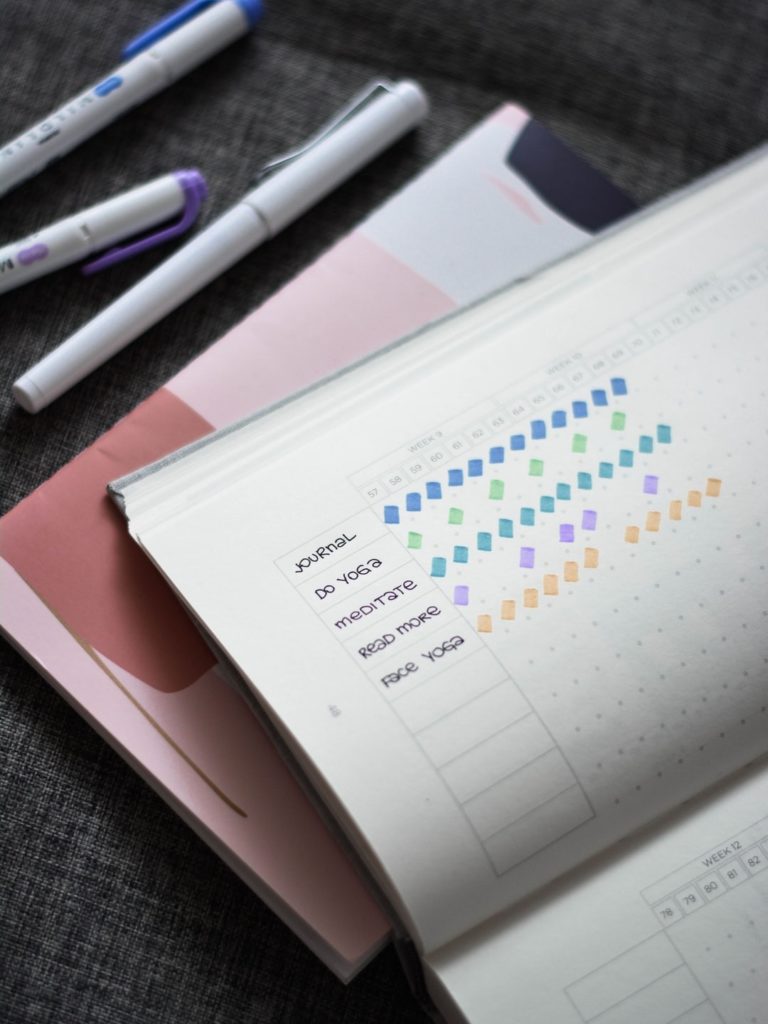Creating and engaging in healthy daily habits can help you keep yourself on the right track through your process of recovery and continue your success through your future. The most difficult aspect of habits is creating them by changing an action into a habitual routine.
What Habits Will Help My Recovery?
Maintaining a structured routine of daily habits can be beneficial, but how can you decide which habits to implement into your treatment? Deciding which habits will benefit you should be done with your unique goals and personal situation in mind. However, there are some suggested habits that can help anyone improve their lifestyle. Reviewing the habits listed below, determine which ones you want to implement into your recovery and alter them to your specific needs if necessary.
- Exercise
- Maintain a healthy diet
- Review your goals
- Attend therapy/meetings
- Prioritize creative engagement
- Meditate
- Read or learn something new
These habits are basic ideas that can improve your mental health as a whole. Engaging in something physical, mental, and creative can help you establish a sense of balance and satisfaction in your everyday life. Reviewing your goals is important to keep yourself on track with your accomplishments and maintain recovery as your priority.
Turning an Action Into a Habit
After reviewing the potential habits to implement into your daily life, you may feel overwhelmed by the idea of making a lifestyle adjustment. After all, there is only so much time in the day to incorporate all of these aspects. Fortunately, your new routine will become natural over time, and the following steps can help you turn your goals into actions and those actions into habits.
1. Make a Plan
Planning out how you will accomplish each of these actions can make them easier to fit into your schedule. For example, if you want to create a habit of drinking a cup of water immediately after waking up every morning, try placing a water bottle next to your bed so it is the first thing you see as you wake up. If you set a goal to read every night before bed, place a book on your pillow to remind you as you are ready to crawl under the covers.
Setting up your surroundings with reminders to prepare you for the action makes it easier to accomplish in the moment. You may think to yourself that you were supposed to drink water but refrain from getting up and accomplishing the action. Having things prepared beforehand makes it easier to engage in the action when it is time.
2. Keep Progressing
Habits are formed from a repetitive engagement of an action. It can take anywhere from 18 to 254 days to create a habit; however, most individuals can adopt a habit after 3 to 4 weeks of consistent engagement. The initial phase of working toward a habit is essential in reinforcing consistency. When creating habits, individuals will often forget a step or even miss an entire day of routines near the begging of implementation. If you do miss a step in the process, it is essential to get back on track and not be discouraged.
If you feel you have failed from missing one or two actions, you will not be able to get through the implementation phase that will turn your actions into habits. Habits take practice and consistency to obtain. Each day is a new day to continue your progression. It is nearly impossible to never miss a day of habit. Habits form from an overall level of consistency on the matter.
3. Use a Habit Tracker
Many planners and notebooks have started to incorporate habit trackers into their designs. Habit trackers allow you to write down your habits and check them off once completed every day. If you find planners beneficial, a habit tracker is highly recommended. It can be an exciting moment to check off each habit, just like crossing an item off your to-do list.
There are many mobile applications with habit trackers as well if you prefer to use a digital platform. The benefit of a digital tracker is the ability to check items off even if you are not at home. Having a reminder of your progress to look back on and having data to review the habits that may need some extra focus can be very encouraging.
Stay Motivated
These three simple tips can make the incorporation of a habit much easier. So much of habit creation is maintaining the motivation to keep working towards it. Don’t give up on your goals, and soon enough, these actions will be a natural aspect of your daily routine.
Creating healthy habits for yourself during recovery can set up a basic daily structure that can lead you to success. The process of implementing a habit can be challenging and take a great deal of patience. It can take time for a goal to become actions and actions to become habits. Fortunately, there are many tips you can use to make this process more manageable. Making a plan to accomplish each habit you wish to incorporate, continuing to push forward, and using a habit tracker can all help solidify a new habit into your routine. Maintaining a strong level of motivation is needed for you to work through this process, but anyone can achieve habit creation. Many habits we acquire arise without us even noticing. Try these suggestions and keep working to create your desired habits in recovery. To learn more about how to create sustainable habits during the addiction recovery process, reach out to Dream Recovery at (949) 732-1960.

